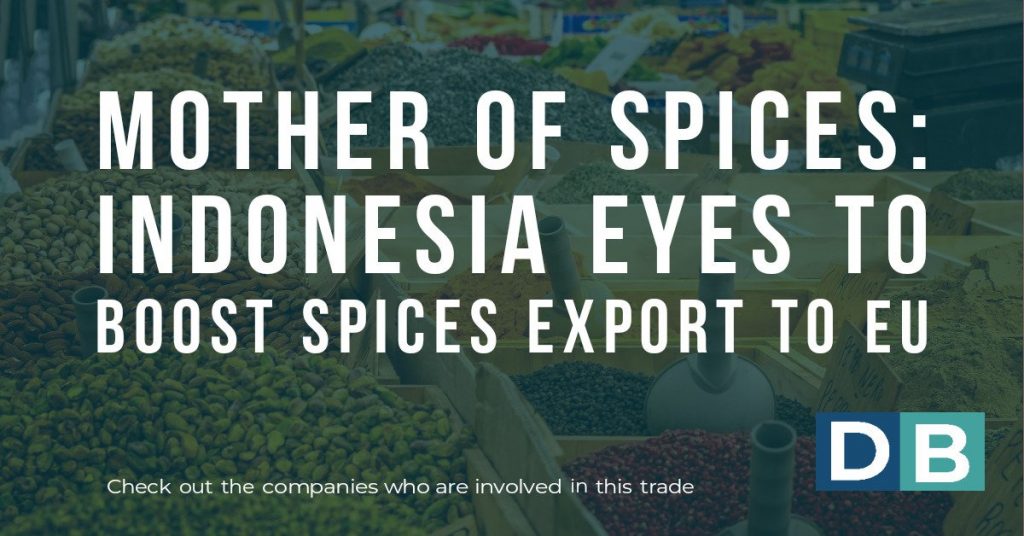Mother of Spices: Indonesia Eyes to Boost Spice Export to the EU
Indonesia is eyeing to ramp up their spice exports —particularly to the European Union, or EU— with a new multi-stakeholder platform dedicated to helping farmers export high-quality and sustainable spices.
According to the Coordinating Ministry for Economic Affairs, the global demand for spices is rising amid the Covid-19 pandemic as the world is becoming more aware of its healing properties.
The ministry’s food and agribusiness coordination deputy Musdhalifah Machmud noted Indonesia recorded $218 million for spice export in January-April 2020, a 19.28 percent rise from the same period in 2019.
“A market prospect that we should address is that the global spice consumption increases 2 to 5 percent per year, with a value of $16.6 billion in 2013,” Musdhalifah told the Sustainable Spices Initiative Indonesia (SSI-I) virtual launch on Thursday.
Musdhalifah said major economies such as the EU, the US, and Japan amount to 47 percent of the total global spice import. She also saw a tremendous opportunity in the EU market.
“The EU holds the largest share, or 34 percent, in the global spice imports, mainly from China, India, Indonesia, and Brazil. The EU is also predicted to have a fivefold increase in spice imports in 2050.”
Unfortunately, Indonesian nutmegs experience difficulties entering the EU, as the spice exceeds the EU’s safety limits for aflatoxin — a fungal toxin that contaminates crops, according to Dedi Junaedi, the director of plantation marketing and processing at the Agriculture Ministry.
To this end, the multi-stakeholder platform has laid out a five-year roadmap. They would also work alongside the government on sustainable spices policies.
“To support the 2020-2025 roadmap, we have formed three working groups who will each focus on improving social impact, sustainable agriculture, and food safety, as well as market access,” SSI-I chairman Dippos Naloanro Simanjuntak said.
The social impact group focuses on achieving a 10 percent increase in farmers’ income.
The sustainable agriculture group would discuss challenges faced by farmers and processors for better and sustainable spice exports. This includes equipping local farmers with good agricultural practices and improving local laboratory capabilities.
“Last but not least is the market access group, which will discuss ways to help link Indonesian spice producers with customers abroad,” Dippos said.
Want to obtain more information?
If you want to analize or know about different India markets just contact us:
-To know who the companies have been; analyze the monthly behavior of the products; Or if you want personalized assistance for your business; You can write to sales@imexdbusiness.com or datasourcing@imexdbusiness.com
